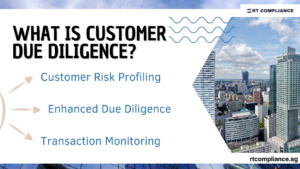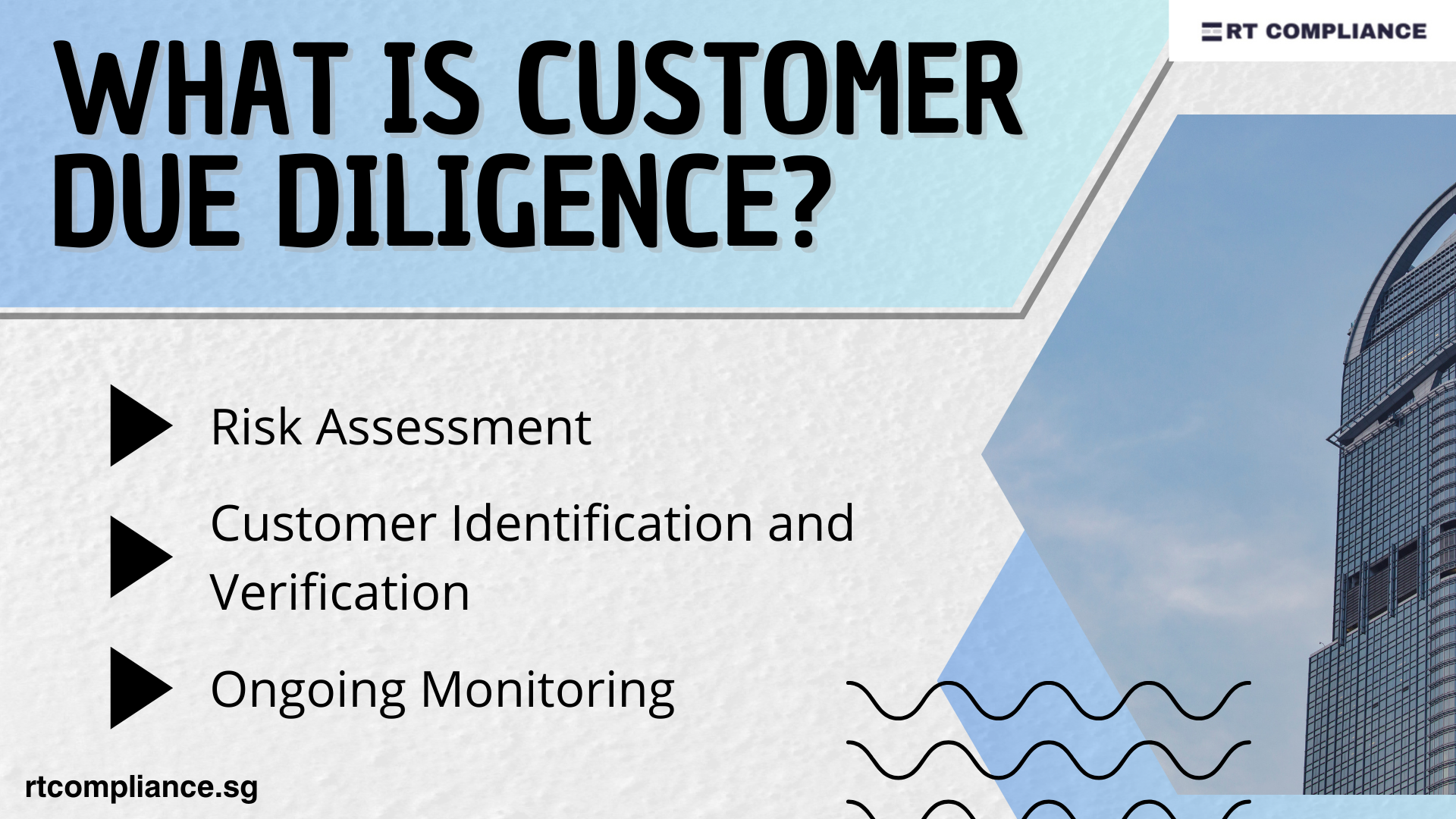Customer Due Diligence (CDD) in Singapore – What Is It & Why It Matters?
Customer Due Diligence (CDD) is a mandatory Know Your Customer (KYC) step under Singapore’s AML/CFT framework. It allows corporate service providers and financial institutions to detect suspicious transactions, verify beneficial ownership, and perform customer risk profiling. In efforts to ensure that illegal channeling of funds is not carried out in the country’s financial markets, the Singapore government is doing all that’s in its power. It has settled for the preventive approach, including detecting and deterring such transactions. Some of its efforts include upping its game in anti-money laundering (AML). So far, MAS has established two departments for the same, enforcement and AML. What about the customer due diligence process? Let’s learn about this procedure.
Step-by-Step CDD Process for Financial Institutions in Singapore
Customer Due Diligence (CDD) in Singapore is a strict, multi-step procedure aimed at avoiding money laundering, terrorist financing, and other illegal financial operation. The process is regulated by AML/CFT rules and MAS guidelines that should be followed by banks, fund management companies, trust service providers and other regulated entities.
1. Customer Identification and Verification (KYC)
Gather and confirm official documentation of identification first:
✔️ Individuals: NRIC, passport and identification of address.
✔️ Companies: Certificate of Incorporation, business profile, and director/UBO identification.
This step delivers the client is who he or she presents himself to be and achieving the fundamental Know Your Customer (KYC) requirements.
2. Customer Risk Profiling
Each customer is subjected to the risk assessment depending on several factors.
✔️ Type of business activity
✔️ Jurisdiction of incorporation or residence
✔️ Expected transaction volumes
✔️ Past compliance behavior
The outcome of the result denotes the sort of due diligence required in Simplified Due Diligence (SDD), Standard CDD, or Enhanced Due Diligence (EDD).
3. Beneficial Ownership Verification
Identify and validate the Ultimate Beneficial Owners (UBOs) of the company, especially the ones which control 25% or more shares or voting rights of the company. This is to deter use of shell companies that shield illegal dealings.
4. Intent and Desired Form of the Relationship
Know the reason why the customer opened the account, the expected transactions. This provides the baseline for future monitoring of transaction.
5. Funds and Wealth Sources Checks
Especially for the high-risk clients, you will need to ascertain the source of the money:
✔️ Income statements
✔️ Asset sale documents
✔️ Inheritance records
This aids in the identifying of possible money laundering schemes.
6. Sanctions and Adverse Media Screening
Use reliable databases to seek the following information about the customer:
✔️ Appears on any sanctions lists
✔️ Is categorised as a Politically Exposed Person (PEP).
✔️ Has been listed in adverse media.
7. Ongoing Monitoring
CDD doesn’t stop after onboarding. Monitor transactions from time to time to identify suspicious activities. Abnormal behavior may cause a re-assessment or Enhanced Due Diligence to be set in motion.
Why Is Customer Due Diligence (CDD) Compulsory under Singapore AML/CFT Rules?
Singapore recognises that without robust CDD checks, fraudsters, money‑launderers and terrorist financiers could easily exploit the system. The Monetary Authority of Singapore (MAS) CDD guidelines therefore oblige FIs and DNFBPs to confirm the source of funds, run sanctions screening, and apply ongoing monitoring throughout the relationship. Consequently, the integrity of the economy and the victims, financial institutions and enterprises, is compromised. The country believes that customer due diligence is the key to protecting them. As a matter of fact, it is a process that the government relies on to a greater extent in countering terrorism financing and combating money laundry.
Who Must Undergo CDD & Know Your Customer (KYC) Checks in Singapore?
As long as your company is guided by the Countering the Financing of Terrorism (CFT) and AML regulations, all your new clients need to undergo customer due diligence. It involves figuring out the identity of the customer and any other interested party in the company. The identity should also be verified using the necessary supporting documents.
However, the process shouldn’t stop there. On the contrary, it should be a continuous process, and the information your company has on its customers should be up to date. Otherwise, not checking the data of both the new and the existing clients at all times will make the records irrelevant.
Supporting Documents for CDD, Beneficial Ownership & Source‑of‑Funds Checks
As mentioned earlier, you will need supporting documents to verify the identity of the person you are transacting with effectively. Therefore, the client has to avail the following documents:
- Individual NRIC and passport or both
- Individual documents, including bank statements and utility bills
- Latest audited financial statements (corporates)
- Detailed information on the structure of the company’s ownership, including the nature of the business
How Long Does the Customer Due Diligence (CDD) Process Take in Singapore?
There is no definite time for the completion of the customer due diligence procedure. As a matter of fact, the profile and the cooperation of the client play a massive role in determining the period.
Conclusion – CDD, KYC & AML Compliance: Safeguarding Singapore’s Financial System
No company should take customer due diligence lightly. The fact that it brings out transparency which is a crucial ingredient of success. No business wants the excellent reputation of Singapore to be destroyed since trust is vital in the business world. That’s why they should carry out customer due diligence to prevent terrorism funding and money laundering since it can jeopardize the reputation and trust. Besides that, it is an ideal way of upholding integrity and promoting the stability of the country’s financial system.






